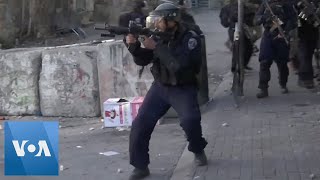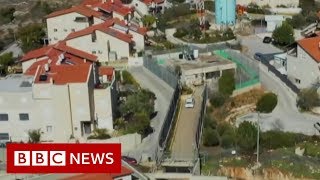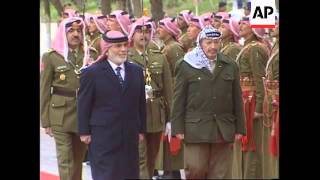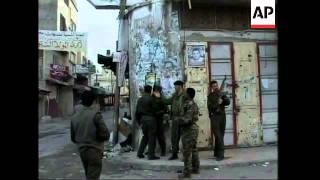Friday, 12 December, 2025г.
















Где искать: по сайтам Запорожской области, статьи, видео ролики
пример: покупка автомобиля в Запорожье
Palestinian PM Fayyad and UN envoy pick olives, following recent grove attacks
(26 Oct 2010) SHOTLIST Turmus Aya, West Bank - 26 October 2010 1. Zoom out from Israeli settlement of Shiloh on the horizon to olive plantation in Palestinian village of Turmus Aya 2. Various of Palestinian policemen picking olives 3. Palestinian Prime Minister Salam Fayyad shaking hands with Robert Serry, UN special coordinator for the Middle East peace process 4. Zoom out and pan from Israeli settlement of Shiloh to Fayyad and Serry picking olives 5. SOUNDBITE: (English) Robert Serry, UN Special Coordinator for the Middle East Peace Process: "I was thinking, what can be more symbolic at 65 years of a UN anniversary, actually than to come here, to pick olives in Palestine and to participate here with the farmers? The harvest is an act of identity and of self reliance. It is a symbol of people's unyielding attachments to their homelands. This ancient and beautiful tree and its fruit bring together so much of the hope and resolve of the Palestinian people, the olive is a giver of life, the olive branch is an emblem of peace and the olive tree is a symbol for Palestine." 6. Cutaway of olive trees 7. SOUNDBITE: (English) Salam Fayyad, Palestinian Prime Minister: "There is an address for these settlers, it's the government of Israel. These settlers have an address and it is called the government of Israel. Under international law of which the United Nations is the custodian, Israel is the occupying power and therefore it is responsible for the protection of civilians, that's what international law requires." Luban al-Sharkiyeh, West Bank - 23 October 2010 8. Wide of Palestinian farmers inspecting damage in their olive fields 9. Various of felled olive trees 10. Palestinian farmers inspecting damage 11. Close-up of stump of tree trunk 12. Wide of Palestinian farmers inspecting damage STORYLINE The UN special coordinator for the Middle East peace process joined Palestinian Prime Minister Salam Fayyad to help with the olive harvest in a West Bank village on Tuesday, as Palestinian farmers and Jewish settlers increasingly compete with each other to strengthen their hold on the land by planting trees. Robert Serry described the collecting the harvest in the village of Turmus Aya as an "act of identity and of self reliance". Palestinians and activists groups accuse Jewish settlers of vandalising olive groves in order to push back their orchards. Rights groups documented over 40 attacks against Palestinian-owned trees this harvest season, including 20 chopped down overnight on Saturday in Luban al-Sharkiyeh near the Jewish settlement of Eli. The attacks are small in comparison with the size of the Palestinian crop. But they are generally done around the perimeters of Jewish settlements to frighten Palestinians from accessing lands in those areas, allowing hardline Jews to claim more land. Olives are the Palestinian crop of choice for more than sentimental reasons. They grow easily and need little maintenance, so farmers need not linger in fields around settlements where they are sometimes at risk of being attacked. The trees survive on winter rains, a key source of water in an otherwise drought-ridden territory. Olive oil now sells locally for about seven US dollars a litre, or about 25 US dollars a gallon, making it an important cash crop. And for the some 70,000 families who grow the estimated 10 (m) million Palestinian olive trees, most of them rural poor, it's a food staple. The olive competition is part of the long-standing struggle for the West Bank, which Israel occupied during the 1967 Mideast war. The United States is trying to broker peace negotiations that would give Palestinians an independent state including most, if not all of the territory. But neither side is waiting idly for a deal. You can license this story through AP Archive: http://www.aparchive.com/metadata/youtube/b8d6323e6a3657a5d59795c950d83cfd Find out more about AP Archive: http://www.aparchive.com/HowWeWork
Теги:
AP Archive 662697 b8d6323e6a3657a5d59795c950d83cfd Middle East Olives West Bank Palestinian territories Middle East Israel Salam Fayyad
Похожие видео
Мой аккаунт


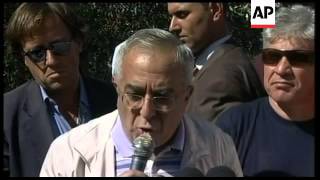 У вашего броузера проблема в совместимости с HTML5
У вашего броузера проблема в совместимости с HTML5